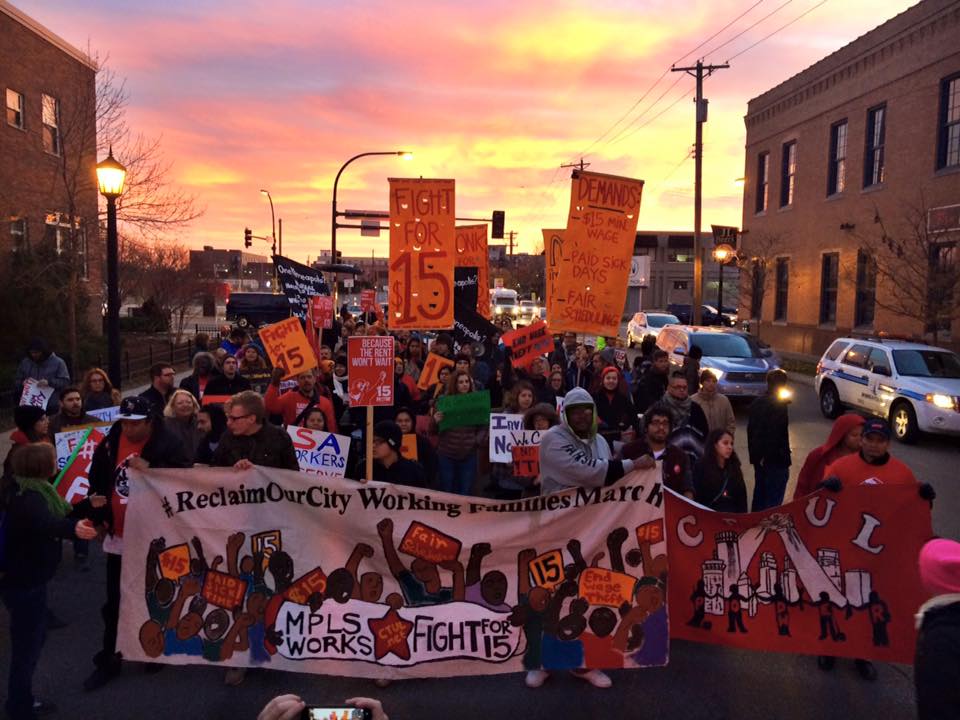
Photo Credit: Claire Van den Berghe

Share
Last month I formally became the Director of Labor Education Service (LES) as COVID-19 was an alarming but distant concern. During our internal voting process for the LES Director we didn’t think to ask, “How would you respond to a pandemic?”
Needless to say, like everyone else this was an unanticipated turn of events and the truth is I am learning every day how the stress of the situation affects me, brings my strengths forward and otherwise leaves me feeling debilitated. I think that’s true for a lot of us.
The depth of being responsible for other people during a time of crisis weighs on me, along with being a reporter running Workday Minnesota at a time when clear honest information is hard to come by.
Like the rest of our partners, LES is figuring out how to claim our identity and better understand how, as an institution, we relate to workers and best support their concerns and interests during this pandemic.
As we struggle to find clarity, I invite us to learn through this together. There is no guidebook, no experience to lean on except in the past we share, the ways we have bound together to fight for our collective dignity.
As we fight for each other’s dignity, what emerges is an undeniable force of vision and conviction.
So lean on me while I lean on others to find our strength, to fight for the better world we all deserve. Workday has been striving to play an elevated role in bringing attention to the concerns, struggles and victories of everyday people.
This omnipresent virus has made obvious that working people are struggling tremendously and are seen as disposable by the wealthy. Our union family is on the grimy front lines of this crisis, exposed and suffering. The undocomunted are performing essential labor without rights under threat of deportation. Those without advocates are going hungry or possibly becoming infected with COVID-19. Their voice is lost in the daily death and infection counts.
When the dust has settled and we find ourselves mourning the ones we have lost and a past that seems so distant, you can look to our Labor Education program to guide you through the wreckage. You can lean on us as you always have. Within this context I am happy to announce that we have two new Labor Educators coming on board. We expect that our scope of work will expand along with our ability to support the labor movement and working people in a time of confusion and crisis.
My LES colleague Amy Livingston, who led the hiring committee and was our only Labor Educator for over a year, stated that;
“This is a critical moment for working people in Minnesota and beyond, so we are so excited and grateful to be able to expand our education program right now. Not only will we have a greater capacity to offer trainings, facilitation, and other programs, but the two people we have hired bring their own unique skills and perspectives to our work that will help us continue to push the boundaries of what labor education is. We hope we will always be the Minnesota labor movement’s first resource for trainings on collective bargaining, grievance handling, labor history, and other traditional subjects of labor education, but our program can also help workers and their organizations confront the most urgent questions of our time: how do working people build real, sustainable power? How can and does the labor movement interact with other social movements and what can we learn from them? What is our vision of a better world for working people and how do we get there? What do ‘health’ and ‘safety’ really mean for working people, and how does labor help create a world that prioritizes them?”
We are here for you. Dedicated to the day-to-day struggle of working people. Please reach out and let us know what you are dealing with and what sort of programming and education courses/programs you think you might need.

